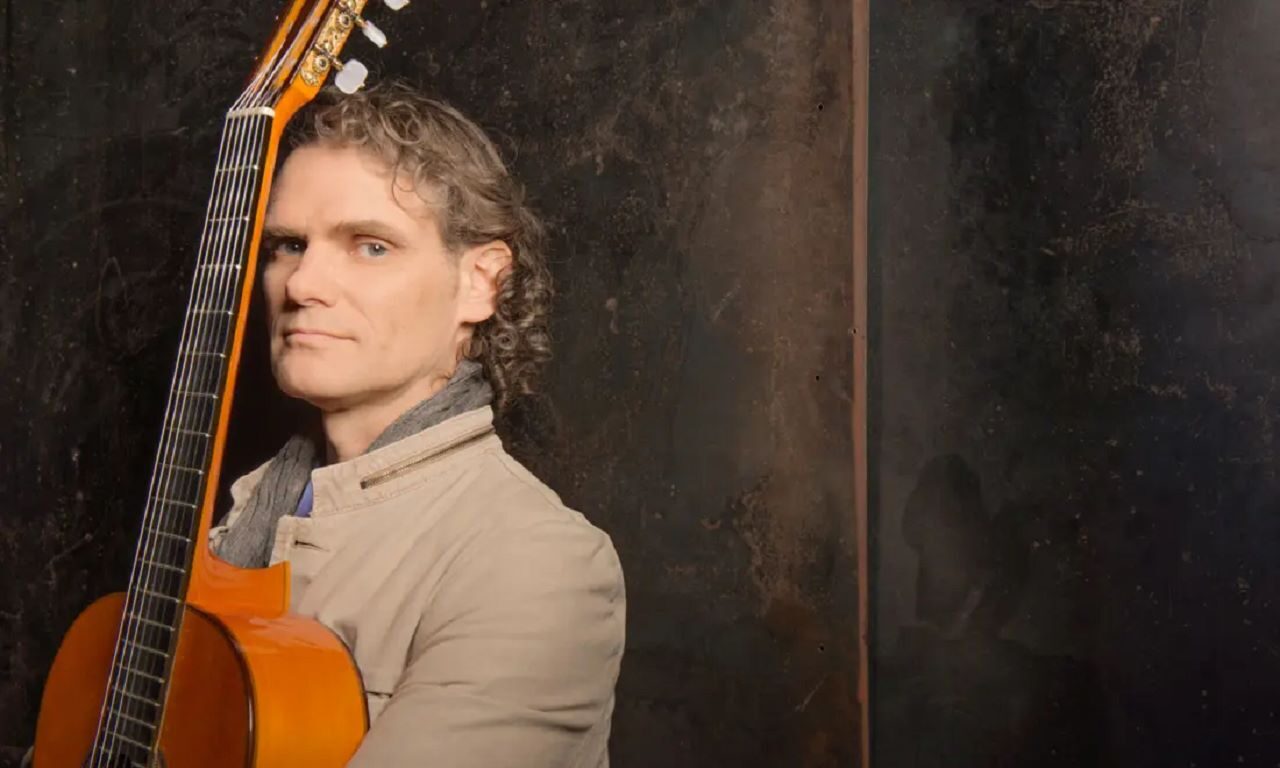French-Canadian Jesse Cook is touring North America with overwhelming success. Known internationally for representing the new flamenco, he himself assures that in Spain he would not be considered as such even remotely.

His name may not ring a bell, but in the international music market, Jesse Cook is the standard-bearer of new flamenco. We wanted, therefore, to delve into his figure to find out something that we already sensed: how well flamenco is moving outside our borders.
Jesse Cook and the Gipsy Kings
Born in Paris in 1964, he got his hands on a guitar when he was only three years old. He liked flamenco and especially the French gypsy artist Manitas de Plata, who was from a family of Catalan origin and who was known for his mastery of the rumba. When she moved to live in the south of France (Camargue and Arles, where Andalusian art has a strong presence), she met Nicolás Reyes of the Gipsy Kings, who was his neighbour. Jesse Cook would later say that it would influence him a great deal (as well as having an impact on that more rumba flamenco).
He also lived for a time in Barcelona, which accentuated this introduction to the Catalan-style palo. He would travel around Spain and take lessons from Andalusian masters, among others. all a bit informal but with an interest that took hours and hours of practice and training.
He had previously taken classical guitar lessons at Eli Kassner’s academy in Toronto, at the Royal Conservatory of Music and at York University, concluding them at Berklee College of Music in the United States.
The first album coins its legend as “new flamenco”.
His father and mother were both famous in the world of TV and film, so it’s not surprising that his first job was as a programme tuner. The history of its beginnings tells that,in 1994, a Canadian cable television company used the sounds of his flamenco guitar as a soundtrack in its programme guide. The music attracted the attention of viewers who lobbied to publish their music. And that’s what Jesse Cook did.
That first album was called Tempest (Tempest) and reached number 14 on the Billboard chart, which was a resounding success for a first-time artist. Just with this album, Jesse Cook was crowned as a guitarist who represented the new flamenco. His great virtuosity has not ceased to be recognised with awards of all kinds, such as the one he received from Acoustic Guitar magazine in the Flamenco category (the gold went to Paco de Lucía).
Full of concerts
Cook considers himself a hybrid artist, and he is right. Flamenco has been mixed with jazz, pop and other world music. In fact, Jesse Cook himself replied in a recent Berkshire Edge interview,“If you go to Spain and play [mi] music, they’ll say, what’s this?”
The reality is that this mixture of styles, which is his music, has reaffirmed him even more as a champion of the new flamenco, less pure, more innovative. And whether it’s more or less your opinion or ours (watch the video below from his Youtube channel and see what you think…), this is his image and this is part of sold-out (or almost sold-out) tours and impressive sales: over 1.5 million albums. It must also be said that he is a great musician and composer, whatever label he has.
It doesn’t look like he’s coming to Spain anytime soon, but you can follow his tour on his website.
